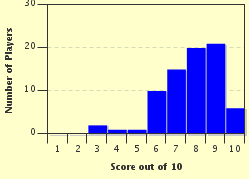Quiz Answer Key and Fun Facts
1. This stitch is sometimes called a straight stitch but goes by another name that would seem to relate to quickness. Which stitch is this?
2. This type of stitch is commonly used in embroidery or needlework. Which type of stitch is it?
3. This stitch picture is more complex. The red represents the thread on this side of the fabric and the pink represents the thread on the other side of the fabric. The blue arrows and numbers represent the order of the various stitches. Which type of stitch is this?
4. With this type of stitch, the red represents the thread on our side of the fabric and the pink represents the thread on the other side of the fabric. Notice that most of the thread is hidden on the other side. What type of stitch is this?
5. This type of stitch almost spells out its answers. It is often done on sewing machines. What type of stitch is it?
6. For this stitch, I have used a black line to represent the edge of our piece of fabric. This type of stitch sounds like the weather is not quite right, but not TOO bad. What type of stitch is it?
7. You need to link the thread to name the type of stitch that can be used in embroidery work on a single layer of fabric. What is this type of stitch?
8. The key to naming this stitch is knowing that it involves two threads and is usually done nowadays on a sewing machine. What type of stitch is this?
9. This type of temporary stitch is sometimes called a basting stitch. What is this type of stitch?
10. Sometimes you want to see a stitch and sometimes you do not want to see a stitch. This stitch is meant to almost be unseen. What type of stitch is it?
Source: Author
bernie73
This quiz was reviewed by FunTrivia editor
WesleyCrusher before going online.
Any errors found in FunTrivia content are routinely corrected through our feedback system.


